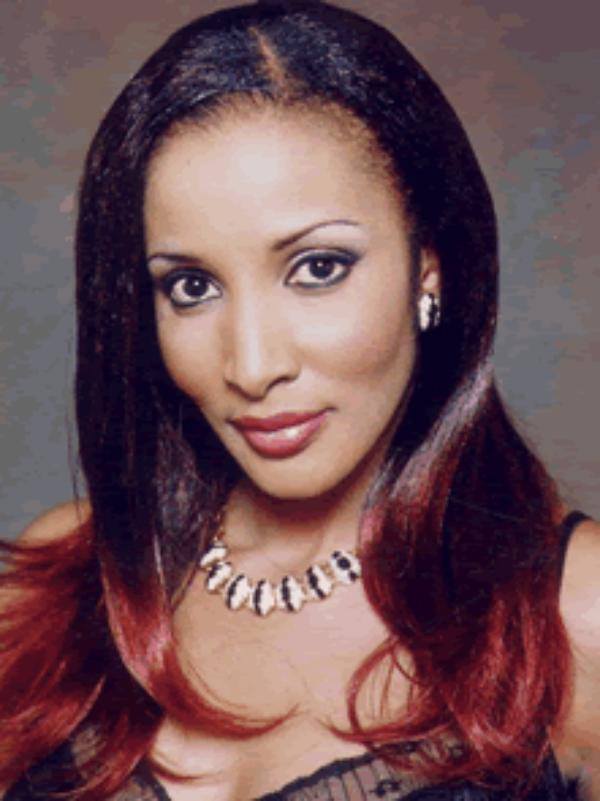The Nigerian Senate has confirmed the nomination of seven new ministers, including Bianca Odumegwu-Ojukwu as Minister of State for Foreign Affairs and Dr. Jumoke Oduwole as Minister of Industry, Trade, and Development.
These confirmations come as part of President Bola Tinubu’s ongoing effort to fill key roles in his administration.
Following a lengthy five-hour screening, the Senate approved all seven nominees on Wednesday afternoon.
This confirmation process, described by Senate officials as thorough and rigorous, is part of Tinubu’s larger strategy to stabilize the nation’s leadership team and drive critical policies forward.
Senate President Godswill Akpabio announced the appointments after reading President Tinubu’s formal letter of nomination during last Thursday’s session.
“This is a significant moment,” Akpabio stated during the confirmation. “We are placing the nation’s future in the hands of qualified individuals.”
The new appointees come from diverse professional backgrounds, reflecting Tinubu’s intent to build a government with a balanced mix of experience and expertise.
These confirmed nominees include:
• Bianca Odumegwu-Ojukwu, appointed as Minister of State for Foreign Affairs.
• Dr. Jumoke Oduwole, confirmed as Minister of Industry, Trade, and Development.
• Dr. Nentawe Yilwatda, who will serve as Minister of Humanitarian Affairs and Poverty Reduction.
• Muhammadu Dingyadi, stepping into the role of Minister of Labour and Employment.
• Idi Muktar Maiha, assigned as Minister of Livestock Development.
• Yusuf Ata, confirmed as Minister of State for Housing.
• Dr. Suwaiba Said Ahmad, appointed as Minister of State for Education.
These appointments mark an important step in Tinubu’s administration, aiming to drive forward reforms in critical sectors such as foreign affairs, industry, and employment.
Senate officials highlighted the broad skill set each nominee brings to their role, reflecting President Tinubu’s commitment to assembling a cabinet capable of addressing Nigeria’s complex challenges.
The confirmation process started with a special session in which the Senate suspended its usual rules to allow Basheer Lado, the Special Adviser to the President on Senate Matters, to present the nominees.
Senate Leader Opeyemi Bamidele introduced the motion to adjust procedural rules, allowing Lado to bring the nominees into plenary.
This step, according to Bamidele, underscores the urgency with which these roles need to be filled, particularly as the country faces economic, social, and security issues.
“This session has demonstrated the Senate’s commitment to a smooth, efficient process,” Bamidele noted.
During the screening, senators posed probing questions to each nominee, scrutinizing their background, expertise, and plans for office.
Bianca Odumegwu-Ojukwu, a former Nigerian Ambassador to Spain and widow of the late Biafran leader Chukwuemeka Odumegwu-Ojukwu, received particular attention.
Her background in international diplomacy, coupled with her connection to Nigeria’s history, has positioned her as a prominent figure in the new cabinet.
“We expect nothing short of excellence from her,” one senator commented, emphasizing the crucial role she will play in Nigeria’s foreign relations.
Dr. Jumoke Oduwole, appointed as Minister of Industry, Trade, and Development, also drew significant interest.
Known for her previous work as Special Adviser to the President on Ease of Doing Business, Oduwole has been instrumental in policy initiatives aimed at boosting Nigeria’s economic landscape.
Her new role is seen as pivotal in addressing Nigeria’s trade and industrial development goals amid global economic challenges.
“Dr. Oduwole’s work in promoting business and economic growth speaks for itself,” remarked Senate President Akpabio.
He noted that her experience would be critical in strengthening Nigeria’s economy and attracting foreign investment.
Other nominees also faced rigorous questioning, especially those appointed to roles affecting the economy and social welfare.
Dr. Nentawe Yilwatda, who will oversee Humanitarian Affairs and Poverty Reduction, outlined his plans to address Nigeria’s poverty crisis and tackle the pressing issue of displaced persons.
Yilwatda pledged to work closely with local and international partners to improve aid distribution and foster sustainable development in impoverished communities.
Muhammadu Dingyadi, the incoming Minister of Labour and Employment, stressed the importance of labor reforms and employment generation during his screening.
“Nigeria needs a stable, robust job market to combat poverty and youth unemployment,” Dingyadi stated.
He committed to supporting initiatives that would create jobs and protect workers’ rights.
These confirmations have raised hopes among Nigerians, many of whom view these appointments as a turning point for the nation’s key sectors.
President Tinubu’s nominees, widely regarded as experts in their fields, are expected to make an immediate impact in their respective ministries.
Idi Muktar Maiha, who will take charge as Minister of Livestock Development, shared his vision for revitalizing Nigeria’s livestock sector, which he believes has the potential to boost local economies and create jobs in rural areas.
Meanwhile, Yusuf Ata, as Minister of State for Housing, plans to address Nigeria’s housing crisis by working on affordable housing policies and solutions for low-income families.
In his statement, Ata highlighted the importance of affordable housing in creating a more stable society.
Dr. Suwaiba Said Ahmad, the new Minister of State for Education, expressed her dedication to reforming the nation’s educational system, focusing on enhancing access to quality education for children across Nigeria.
She noted the urgency of addressing Nigeria’s educational challenges, particularly in northern regions, where enrollment and retention rates are low.
Following the confirmations, the Senate urged the new ministers to swiftly implement effective policies that will address the issues plaguing their sectors.
Many Nigerians are hopeful that these appointees will bring about positive change, especially in areas critical to Nigeria’s development.
“These are capable individuals who have the qualifications and experience to make a real difference,” Senate President Akpabio emphasized.
He concluded by urging each nominee to “serve with integrity and a commitment to the Nigerian people.”

